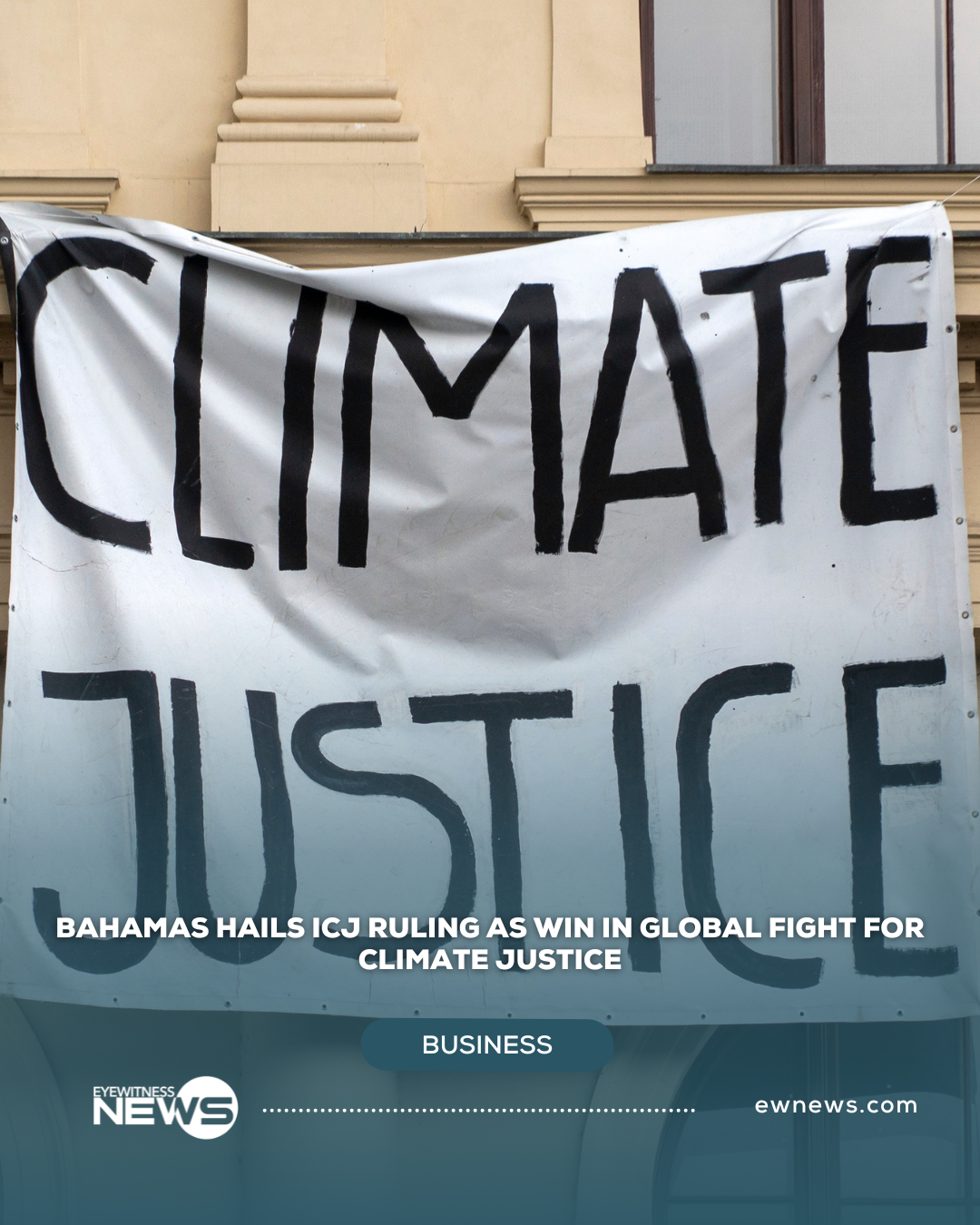NASSAU, BAHAMAS — The Bahamas has welcomed a landmark ruling from the International Court of Justice (ICJ) that affirms major polluting countries have a legal obligation to reduce their greenhouse gas emissions and support vulnerable nations suffering climate-related loss and damage — a position long championed by The Bahamas and fellow small island developing states (SIDS).
The ruling, though advisory and not legally binding, is being hailed by the Bahamian government as a “seismic” shift that transforms climate action from a moral imperative into a legal duty under international law. The ICJ recognized climate change as an “urgent and life-threatening crisis” caused by human activity and reinforced the obligation of states to prevent environmental harm beyond their borders.
“This decision confirms what we have long advocated — that climate change threatens the most fundamental human rights of Bahamians,” said Prime Minister Philip Davis. “We now have the legal backing to hold major polluters accountable for the harm inflicted on our people and our islands.”
The opinion stems from a case brought to the ICJ by Vanuatu and backed by the Alliance of Small Island States (AOSIS), a 39-member coalition that includes The Bahamas. The case asked the Court to clarify whether states are bound by international law to curb emissions and what legal responsibilities they bear for contributing to climate change.
Attorney General Ryan Pinder KC, who presented The Bahamas’ oral arguments before the ICJ earlier this year, emphasized the decision’s significance.
“Today’s decision affirms that The Bahamas was right all along. Climate change is not just an environmental issue — it is a human rights issue,” said Pinder. “The Court has made it clear that the world’s largest polluters must take responsibility and help repair the damage they have caused. This is not charity — it is a legal obligation.”
Pinder had detailed the country’s experience with Hurricane Dorian, highlighting the $3 billion in damage caused by the Category 5 storm in 2019. With over 80 percent of the country less than 1.5 meters above sea level, The Bahamas is acutely vulnerable to rising seas and extreme weather.
Rochelle Newbold, Director of the Climate Change & Environmental Advisory Unit in the Prime Minister’s Office, called the ruling an affirmation of the country’s fight for survival.
“Small island states like The Bahamas have always led the fight for climate justice,” Newbold said. “This decision affirms our right — and our people’s right — to life, to safety, and to a healthy climate.”
Climate Change Advisor Charles Hamilton added: “Today’s outcome is clear: The Bahamas continues to punch above its weight. All countries must take responsibility for protecting our shared climate — and when they fail, they must be held accountable for the damage done to small island nations like ours.”
The ICJ’s opinion is expected to influence global climate negotiations and legal strategies ahead of COP30 in Brazil, where loss and damage funding and climate accountability are set to dominate the agenda.






